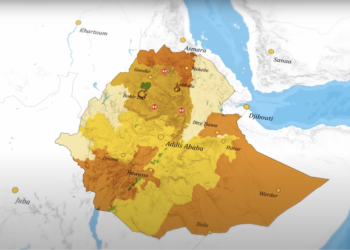Introduction
Israel’s strategic position in the Middle East has long been a cornerstone of U.S. policy in the region, backed by billions of dollars in military aid and a firm alliance. But increasingly, many observers around the world view Israel not just as a regional power but as a destabilizing force whose actions threaten U.S. interests and global security. From aggressive military operations in neighboring territories to its approach to nuclear weapons and diplomatic defiance, Israel’s behavior presents significant challenges that extend far beyond its borders.
As tensions continue to flare in the Middle East, it’s time to confront the reality that Israel’s policies are undermining both regional stability and America’s ability to navigate complex diplomatic waters. The U.S.’s continued support for Israel despite these dynamics raises questions about whether this alliance serves American interests or merely ties the U.S. to a series of conflicts that risk escalating into broader confrontations.
Israel’s Military Operations: A Cycle of Instability
Israel’s military operations in Lebanon, Gaza, and Syria have been a constant source of instability, perpetuating a cycle of conflict that reverberates throughout the region. Its repeated airstrikes in Syria, ostensibly aimed at Iranian-backed forces, carry the risk of broader regional escalation. These actions not only provoke retaliation but also create a pretext for other regional actors to ramp up their military capabilities, contributing to a dangerous arms race in the Middle East.
In Gaza, Israel’s military campaigns have led to devastating humanitarian consequences, sparking global condemnation and fueling anti-Israel sentiments across the Arab world. Each military campaign in the densely populated strip results in civilian casualties, destruction of infrastructure, and further radicalization among the population. This, in turn, leads to a cycle of retaliation and counter-retaliation that traps the region in a seemingly endless conflict.
For the United States, Israel’s actions present a diplomatic dilemma. On one hand, Washington is expected to support its ally, but on the other, it must navigate the fallout of Israel’s military campaigns, which often draw international criticism and complicate U.S. relations with other countries in the region. This dual role undermines America’s ability to position itself as a credible mediator in regional disputes and instead ties it to policies that fuel resentment across the Middle East.
An Alliance at Odds with U.S. Interests
The strategic alliance between the U.S. and Israel, often framed as a pillar of regional stability, increasingly looks like a liability. The billions of dollars in annual U.S. military aid that support Israel’s advanced weaponry come at a cost—not just financially but also in terms of America’s reputation and strategic goals. For many in the international community, the U.S.’s unwavering support for Israel makes it complicit in actions that contravene international law, such as settlement expansion in the West Bank.
This support has broader geopolitical implications. U.S.’s alignment with Israeli policies has alienated potential allies in the Middle East, reducing America’s ability to build coalitions and pursue its broader strategic objectives. For example, the U.S.’s backing of Israel’s stance against the Iran nuclear deal, which was intended to curb Iran’s nuclear ambitions through diplomacy, has led to deeper hostilities between Iran and the U.S., making the region even more volatile. In effect, Washington’s support for Israel’s hardline stance has undercut efforts to negotiate a more peaceful regional order.
Furthermore, Israel’s aggressive posture in the region often drags the U.S. into conflicts that it might otherwise avoid. When Israel conducts strikes against Iranian targets in Syria or Iraq, it raises the specter of retaliation that could embroil American troops stationed nearby. These actions increase the risk of a broader confrontation involving the U.S., potentially dragging it into another costly Middle Eastern conflict that is not aligned with American strategic priorities.
Nuclear Ambiguity and Regional Tensions
One of the most critical ways Israel threatens regional stability—and, by extension, U.S. interests—is through its nuclear posture. Unlike other nuclear-capable countries, Israel has never formally declared its nuclear arsenal, nor has it signed the Nuclear Non-Proliferation Treaty (NPT). This policy of nuclear ambiguity might serve Israel’s short-term strategic interests, but it undermines efforts to create a transparent, rules-based order in the region.
For other countries in the Middle East, Israel’s refusal to open its nuclear program to international oversight sets a dangerous precedent. It sends a message that non-compliance with international norms is permissible for those with the right alliances, further eroding trust in global governance structures. This dynamic has led to concerns that other countries in the region might seek to develop their own nuclear capabilities as a counterbalance, potentially sparking a nuclear arms race.
This arms race presents a direct challenge to U.S. interests, which include non-proliferation and the prevention of nuclear conflict. Washington has consistently advocated for a nuclear-free Middle East, but Israel’s opaque nuclear stance makes this goal all the more elusive. The lack of transparency undermines American efforts to promote stability and places the U.S. in the awkward position of having to justify a double standard in its treatment of nuclear issues in the region.
A Catalyst for Global Tensions
The repercussions of Israel’s actions are not confined to the Middle East. Its aggressive military posture, coupled with U.S. support, risks drawing in global powers, heightening the potential for broader conflicts. In Syria, where Israeli strikes often intersect with the interests of Russia and the U.S., the potential for miscalculations or misunderstandings is ever-present. Any direct clash between Israeli and Russian forces, for instance, could have far-reaching implications, potentially dragging NATO into a conflict with catastrophic consequences.
Israel’s assertive actions also embolden other nations to adopt a more militaristic approach, seeing that aggressive moves often go unchallenged when backed by a powerful ally like the U.S. This could contribute to a more militarized global environment where nations prioritize force over diplomacy, further undermining global stability. It is a dangerous precedent that threatens to destabilize not just the Middle East but the norms that govern international relations.
The U.S. Pays the Price
For the United States, Israel’s actions present a series of escalating risks. Washington’s close alliance with Israel not only makes it a target of resentment and anti-American sentiment across the Middle East, but it also risks entangling the U.S. in conflicts that are increasingly difficult to justify to the American public. As America seeks to pivot its focus towards Asia and global competition with China, its commitments in the Middle East—amplified by its support for Israel—act as a strategic distraction.
The billions of dollars in military aid funneled to Israel could arguably be better spent on domestic priorities or on re-aligning U.S. strategic interests to better reflect the realities of a changing global order. Instead, this aid helps perpetuate a cycle of conflict that keeps the U.S. mired in a region that no longer serves as the primary theater of global power competition. By continuing to anchor itself to Israel’s contentious policies, the U.S. risks undermining its own global standing and credibility.
Conclusion: Time for a Strategic Rethink
Israel’s role in the Middle East has far-reaching implications for U.S. foreign policy, and it’s time for a serious reassessment of this relationship. The assumption that supporting Israel is synonymous with supporting stability needs to be questioned in light of the escalating conflicts and diplomatic challenges that have emerged. Rather than doubling down on a relationship that ties the U.S. to a volatile and militarized region, Washington should consider a more balanced approach that prioritizes diplomatic solutions over military alliances.
The U.S. must ask itself whether its interests are truly served by a policy that continually backs Israel’s aggressive actions. A more nuanced approach could allow America to rebuild its standing in the region, foster new alliances, and reduce the risks of being drawn into another costly conflict. In an increasingly multipolar world, aligning with a state that often acts against broader regional and global stability is a strategic gamble that the U.S. can no longer afford to take.













